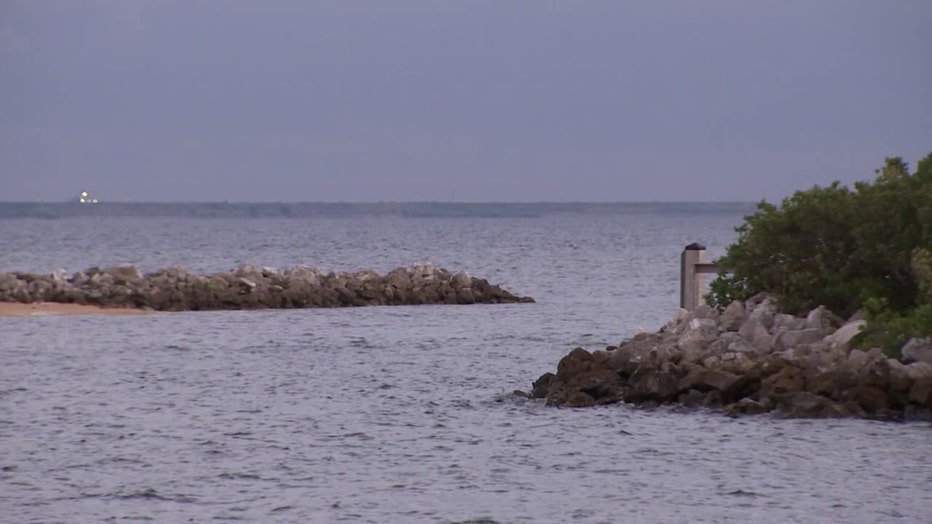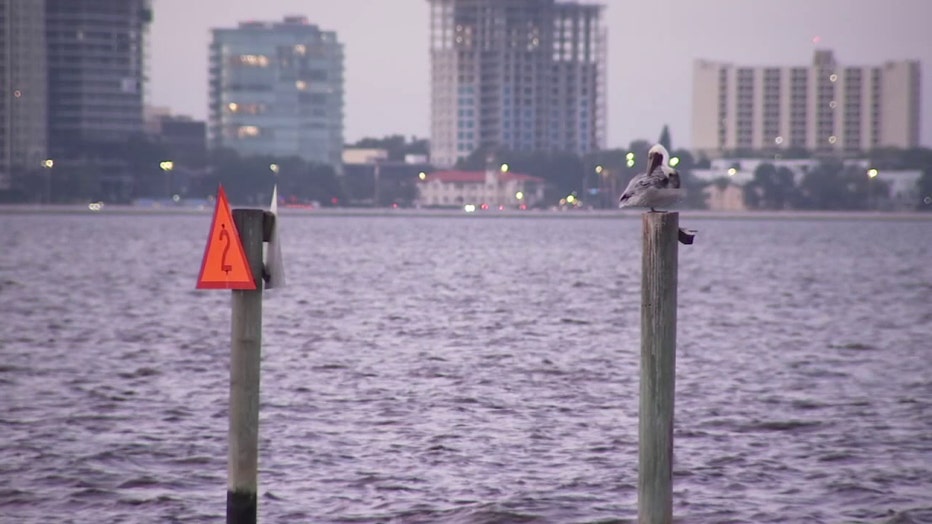Scientist investigates South Tampa’s mysterious bass sound using sound recorders underwater
TAMPA, Fla. - A group of neighbors in South Tampa are teaming up with a scientist from Mote Marine Laboratory to try to get to the bottom of a noise that's been keeping people awake at night.
Dr. James Locascio, a Mote Marine senior scientist, installed five underwater sound recorders called "hydrophones" this month in an attempt to determine whether the low bass beat neighbors have been hearing for several weeks is actually the mating sounds of black drum fish.

"Folks are talking about it's rattling their windows in some areas," said Sara Healy, who organized an online community fundraiser to hire Locascio. "Their kids are getting woken up, or they're not able to fall asleep, because they leave their head down on the pillow, and they just feel this pulsing, like bass coming through their pillows."
RELATED: Mysterious bass sound in South Tampa resurfaces, residents raise money to investigate noise
Locascio has placed the hydrophones in both Hillsborough Bay and Old Tampa Bay and will put a sixth one in off of Davis Islands this weekend.
Healy, meanwhile, has asked neighbors to track when and where they're hearing the sounds, so those reports can be cross-referenced with data from the sound recorders. She's been getting reports from all across South Tampa.
"We're looking at 500 plus hours of underwater noise for the time that we pull the recorders out," Healy told FOX 13.
MORE: Could fish be making the mystery sound heard around South Tampa?

Despite some neighbors suspecting powerful speakers or party boats echoing across the bay, Locascio recently explained why this particular noise would sound different.
"It’s a low frequency sound, and so they travel much better and go further distances, and they go through dissimilar media more efficiently," he said.
This is the same type of noise neighbors first started hearing in late 2022 and early 2023. Locascio, an expert on this type of fish, has always suspected the black drum, which mate in late winter and early spring.
Healy said the hydrophones will stay in the water until April, and she hopes to have some answers by the summer.
SIGN UP: Click here to sign up for the FOX 13 daily newsletter

